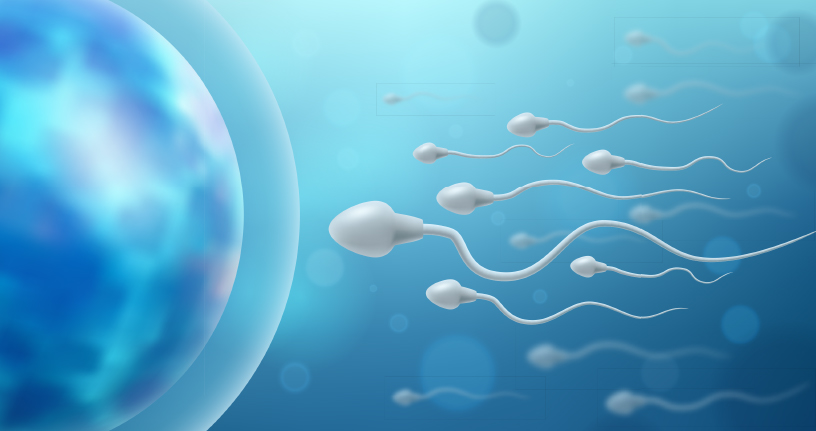Having a child is a blessing, and at one point in life, every man and woman wishes to have a baby to live a joyful life. But in this fast-paced world where men and women both spend most of their time in education and settling up themselves, growing age and other scientific reasons become a barrier to conceiving.
Infertility is a condition where a man or woman is unable to reproduce or conceive after regular and unprotected intercourse many times. In most cases, couples remain unaware of this condition initially, but it affects them emotionally. Sometimes, infertility becomes a psychological trauma for both men and women, and they remain distant from taking a proper medical solution at the right time. There are some early signs of infertility in men and women that they can identify, and they can consult a doctor or medical expert to take appropriate infertility therapy.
There are some signs of infertility in men and women that may vary depending on the underlying causes. Before taking any fertility pill for women and men, it is advised to identify such signs to understand the condition of infertility better.
Signs of infertility in women:
-
- Hormonal imbalances: Hormonal disorder is a major factor of infertility in a woman. This condition can cause polycystic ovary syndrome (PCOS) that can affect their capacity to conceive.
- Irregular periods: If a woman experiences irregular menstrual cycles, shorter than 21 days or longer than 35 days, it could be a sign of ovulation problems.
- Lack of periods or amenorrhea: The absence of periods in a woman could be a sign of infertility, and she may have a reproduction issue.
- Painful or heavy periods: An unusual and painful period could be a sign of endometriosis, a condition in which tissue similar to the lining of the uterus grows outside the uterus in a woman, and this condition could affect her fertility.
- Excessive pain during intercourse: A woman experiencing excessive pain during intercourse could have a condition of endometriosis, pelvic inflammatory disease (PID), or any other reproduction problems that might impact her ability to conceive.
- Age: Usually, women over 35 experience a decline in fertility due to a decrease in the number of fertile eggs.
- Miscarriages: A woman who has experienced recurrent miscarriages can have weak fertility and lose the ability to conceive.
Signs of infertility in men:
-
- Weak sex drive: A man with a weak sex drive and ejaculation problems can find it difficult to reproduce, and this condition might affect his fertility.
- Swelling in testicles: Pain and persistent swelling in the testicles could be a sign of varicocele (enlarged veins in the testicles), which can impact sperm production and thereby cause infertility.
- Low sperm count and poor sperm quality: Low sperm count is a major cause of concern for men, and this condition can lead to infertility. In most cases, fertility treatment for men starts with the test of sperm count and sperm quality.
- Hormonal imbalances: Hormonal disorders can be a sign of infertility in men. It can also cause a decline in sex desire and weak sex drive that affects their reproduction capacity.
- Decreasing facial and body hair: Hair loss or declining hair count on the face and other body parts could indicate male infertility. This condition could occur due to hormonal issues or any other internal problem.
These signs of infertility in men and women are largely indicative and can be treated by medicines and lifestyle measures. The consideration of intensive female fertility medication and fertility drugs for men like ZyHCG HP 5000 i.u, Sifasi-HP (Highly Purified) 10000 i.u, Fertigyn HP 10000 i.u., Corion C 5000 i.u., and Ovidac 2000 i.u. are widely recommended by doctors. Nowadays, Vitro Fertilization (IVF) with Intracytoplasmic Sperm Injection (ICSI) is very effective for conceiving. Fertility pills for women and men should be taken only under medical advice.
Apart from fertility drugs, some lifestyle changes can also help men and women to conceive. Maintaining a healthy weight, avoiding illicit drugs, quitting smoking and alcohol, relieving stress, and regular exercise can help men and women improve sperm quality to reproduce.
The right time to take infertility therapy:
Women under 35 and men under 40 are advised to take proper medical consultation to treat infertility before it becomes too late. There are many medically tested fertility medicines for females and males, and they are easily available in the market. Addressing early signs of infertility by consulting a healthcare expert is always recommended and helpful in a proper diagnosis.
Understanding your partner before consulting a doctor to initiate a treatment is best. Discuss with your partner and make him/her understand the benefits of seeking medical help from a reputable doctor with whom you are comfortable. A couple can also approach psychological support and counselling while treating infertility to have better results.
Do not self-initiate with fertility medicine for females or with male fertility drugs. Taking non-prescription medicine can do more harm than good.


